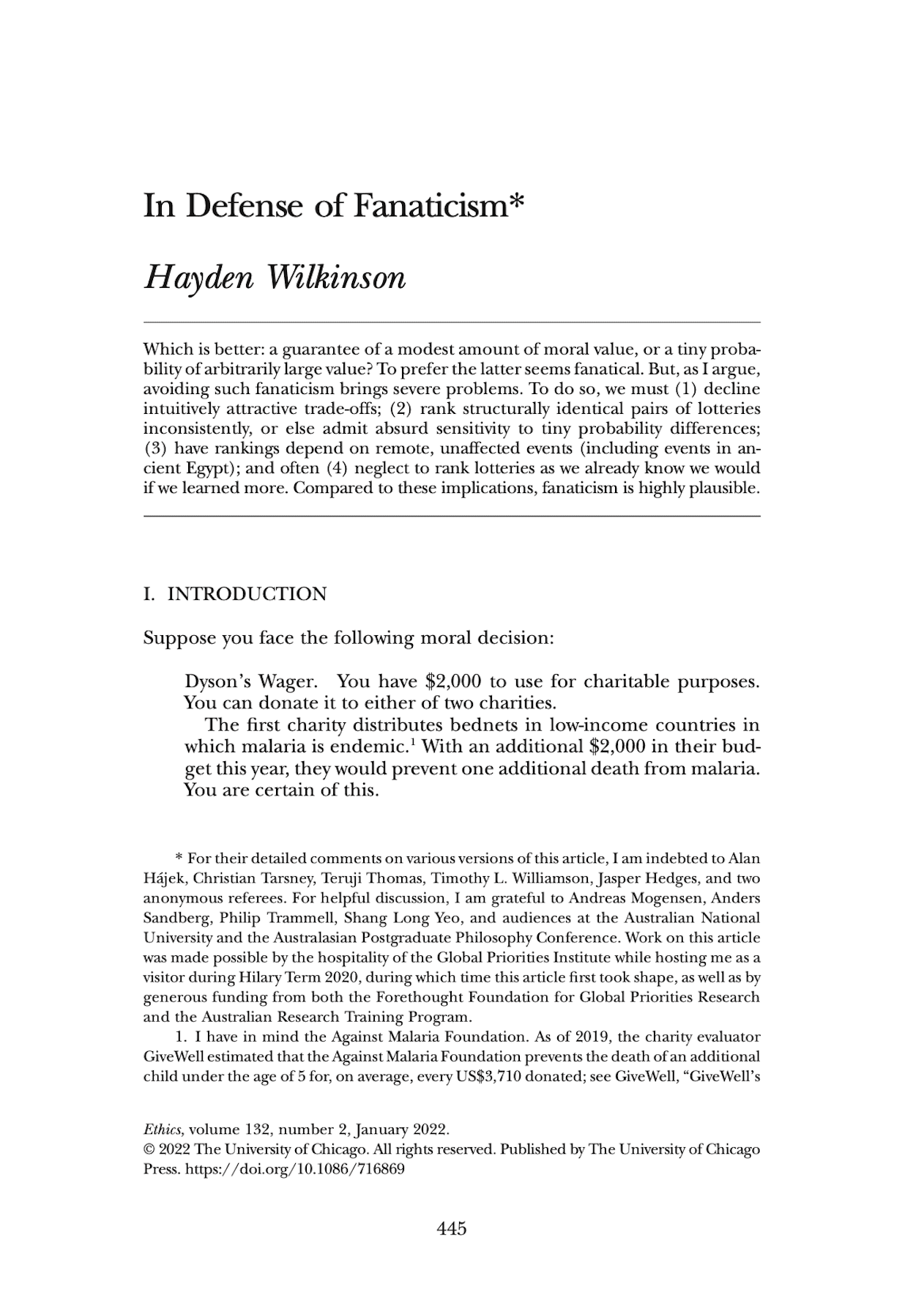In defence of fanaticism
Hayden Wilkinson (Australian National University)
GPI Working Paper No. 4-2020, published in Ethics
Which is better: a guarantee of a modest amount of moral value, or a tiny probability of arbitrarily large value? To prefer the latter seems fanatical. But, as I argue, avoiding such fanaticism brings severe problems. To do so, we must (1) decline intuitively attractive trade-offs; (2) rank structurally identical pairs of lotteries inconsistently, or else admit absurd sensitivity to tiny probability differences;(3) have rankings depend on remote, unaffected events (including events in ancient Egypt); and often (4) neglect to rank lotteries as we already know we would if we learned more. Compared to these implications, fanaticism is highly plausible
Other working papers
Consequentialism, Cluelessness, Clumsiness, and Counterfactuals – Alan Hájek (Australian National University)
According to a standard statement of objective consequentialism, a morally right action is one that has the best consequences. More generally, given a choice between two actions, one is morally better than the other just in case the consequences of the former action are better than those of the latter. (These are not just the immediate consequences of the actions, but the long-term consequences, perhaps until the end of history.) This account glides easily off the tongue—so easily that…
Exceeding expectations: stochastic dominance as a general decision theory – Christian Tarsney (Global Priorities Institute, Oxford University)
The principle that rational agents should maximize expected utility or choiceworthiness is intuitively plausible in many ordinary cases of decision-making under uncertainty. But it is less plausible in cases of extreme, low-probability risk (like Pascal’s Mugging), and intolerably paradoxical in cases like the St. Petersburg and Pasadena games. In this paper I show that, under certain conditions, stochastic dominance reasoning can capture most of the plausible implications of expectational reasoning while avoiding most of its pitfalls…
Staking our future: deontic long-termism and the non-identity problem – Andreas Mogensen (Global Priorities Institute, Oxford University)
Greaves and MacAskill argue for axiological longtermism, according to which, in a wide class of decision contexts, the option that is ex ante best is the option that corresponds to the best lottery over histories from t onwards, where t is some date far in the future. They suggest that a stakes-sensitivity argument…

